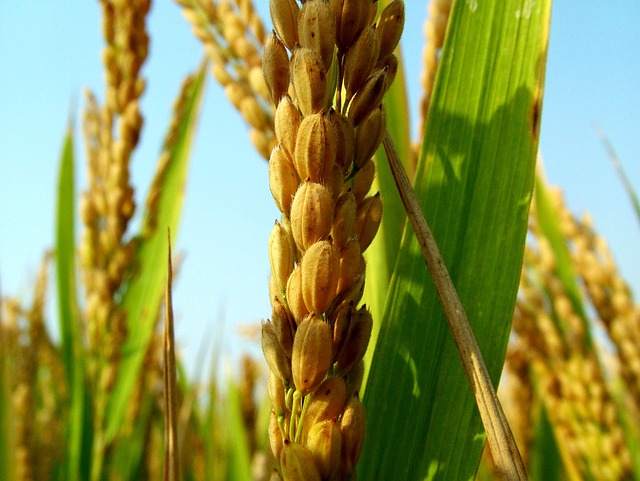Agriculture Jobs: Careers in Farming, Crops, and Livestock
The agriculture sector offers a broad range of jobs that keep food systems running, from hands-on fieldwork to technical, managerial, and research roles. Agriculture jobs span small family farms, large commercial operations, agritech startups, cooperatives, and public agencies. As global demand for sustainable food production and supply-chain resilience grows, so do opportunities for people with diverse skills: manual laborers, equipment operators, crop scientists, animal health technicians, farm managers, and agribusiness analysts. Many roles combine traditional farming know-how with digital tools such as GPS-guided machinery, data analytics, and precision irrigation. Training pathways vary — on-the-job experience, vocational certificates, and university degrees all lead to meaningful careers. In addition to seasonal and permanent positions, there are roles in extension services, quality assurance, logistics, and policy that support the wider food production ecosystem. This article outlines common agriculture job categories, the kinds of tasks involved, and what employers typically look for, helping job seekers and career changers understand where they might fit within modern farming and food systems.

What are agriculture jobs?
Agriculture jobs encompass activities that produce, process, and distribute food, fiber, and related products. Positions include farm laborers who plant, tend, and harvest crops; machine operators who run tractors and harvesters; and agronomists who advise on soil health and crop rotations. Beyond the field, agribusiness roles cover marketing, financing, and supply-chain management. Government and nonprofit jobs focus on rural development, research, and extension — helping farmers adopt best practices. Many roles require physical stamina, attention to detail, and a willingness to work outdoors and adapt to seasonal cycles.
How does farming employment look?
Farming employment ranges from seasonal work during planting and harvest to year-round management roles. Seasonal workers often handle planting, pruning, irrigation, and harvesting, while permanent staff maintain equipment, manage livestock, and oversee crop schedules. Modern farms increasingly seek employees with technical skills for operating precision equipment, monitoring sensors, and using farm-management software. Safety training, pesticide handling certifications, and basic mechanical skills are commonly valued. Opportunities exist on small-scale diversified farms, organic operations, and large commodity farms, each with different routines and workplace cultures.
Which crops roles are in demand?
Crops-related jobs include field technicians, crop advisors, seed technologists, and post-harvest specialists. Demand tends to be strong for workers who can increase yield and reduce waste — for example through integrated pest management, irrigation efficiency, and storage optimization. Specialists in crop protection and soil conservation help maintain long-term productivity. Careers in horticulture, greenhouse operations, and specialty crops (fruits, vegetables, vines) often require knowledge of seasonality, delicate handling, and controlled-environment systems. Data-literate candidates who can interpret yield maps and sensor outputs are increasingly sought after.
What careers involve livestock care?
Livestock careers cover animal husbandry, herd health, nutrition, and breeding management. Roles include farmhands, stockpersons, veterinarians, and animal nutritionists. Work may involve feeding, monitoring health, vaccination programs, birthing assistance, and record-keeping for traceability and welfare compliance. Specialty jobs exist in dairy management, poultry production, and aquaculture, each with specific practices and regulations. Employers look for candidates who understand biosecurity, animal behavior, and humane handling, alongside practical skills like milking, feeding systems maintenance, and data tracking for productivity.
How do jobs support food production overall?
Jobs that support food production extend beyond primary producers to processors, quality controllers, logistics coordinators, and retail buyers. Food safety inspectors, packaging specialists, and cold-chain managers ensure harvested goods reach consumers in good condition. Agronomists and extension agents translate research into farm practice to boost sustainability and resilience. Careers in research and development work on crop varieties, pest resistance, and climate-adaptive practices. Entrepreneurs and consultants help farms diversify income through value-added products, agritourism, or direct-to-consumer channels. These supporting roles are essential for turning agricultural output into safe, accessible food.
Conclusion
Agriculture jobs are diverse and evolving, blending time-honored practices with modern technology and sustainability priorities. Whether you seek hands-on fieldwork in crops or livestock, technical roles that use data and machinery, or supporting positions across processing and logistics, the sector offers pathways for many skill sets. Training can be formal or experiential, and employers increasingly value adaptability, technical aptitude, and knowledge of sustainable practices that protect long-term food production and rural livelihoods.






